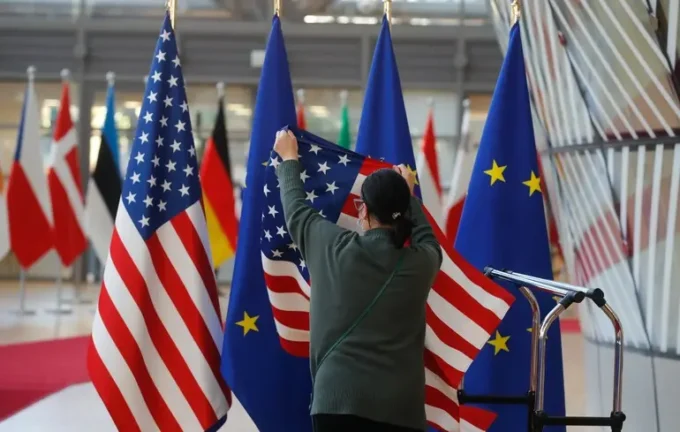EU Faces Criticism Over New US Trade Agreement: Paris and Berlin Express Concerns

Recent developments in international trade have sparked widespread criticism and concern among leading European Union countries.
The governments of France and Germany issued sharp statements expressing their opposition to the signing of a new trade agreement between the EU and the United States, warning that this document could pose a serious threat to Europe's economy.
The primary source of outrage was the US decision to impose 15% tariffs on a broad range of European goods, which led to significant fluctuations in the euro's exchange rate against the dollar—reaching lows not seen in recent months—and raised fears about potential negative impacts on transatlantic trade.
According to reports from The Financial Times, such measures could further complicate the economic climate and undermine trust among businesses.
Key policymakers, notably German Chancellor Friedrich Merz, emphasized that the agreement struck between US President Donald Trump and EU Commission President Ursula von der Leyen presents risks for both Europe and the United States.
"This not only risks increasing inflation but also jeopardizes the stability of transatlantic business relations," Merz stated, highlighting the difficult circumstances and limited options currently available.
French Prime Minister François Bayrou described the deal as a "black day" for the EU, asserting that Brussels has essentially accepted defeat.
Despite disagreements, the parties agreed to implement 15% tariffs, a reduction from the 30% threatened earlier by Trump.
Ursula von der Leyen called the agreement "the largest trade deal in history," covering nearly 44% of global GDP, and noted that it successfully avoided an open trade war between the world's two largest economies.
Nonetheless, markets reacted negatively to the news, with the euro depreciating over 1% against the dollar and about 0.7% against the British pound.
Major indices in Germany and France fell by 1% and 0.4%, respectively, while stocks of European automakers, most affected by the tariffs, declined by 1.8%.
The US Chamber of Commerce in the EU welcomed the deal but emphasized that the 15% tariff rate still makes trade more expensive and urged broadening the list of sectors with zero tariffs.
The US Department of Justice announced plans to pursue measures against violators of Trump-era tariffs.
The White House stated that the agreement lays the groundwork for "historic structural reforms" and aligns with the interests of American industry, workers, and national security for years to come.
Spanish Prime Minister Pedro Sánchez cautiously supported the deal, noting his "limited enthusiasm" but overall approval.
Conversely, far-right political forces in France and Germany criticized the deal as a display of Europe's weakness.
Meanwhile, Chinese analysts believe this situation will strengthen their position and expect greater concessions from the US in upcoming trade negotiations.
To recall, the US and the EU have signed an agreement whereby EU countries will fully finance the purchase of arms and equipment, most of which will be directed towards Ukraine, supporting Kyiv’s defense capabilities through cooperation with the American defense sector.

